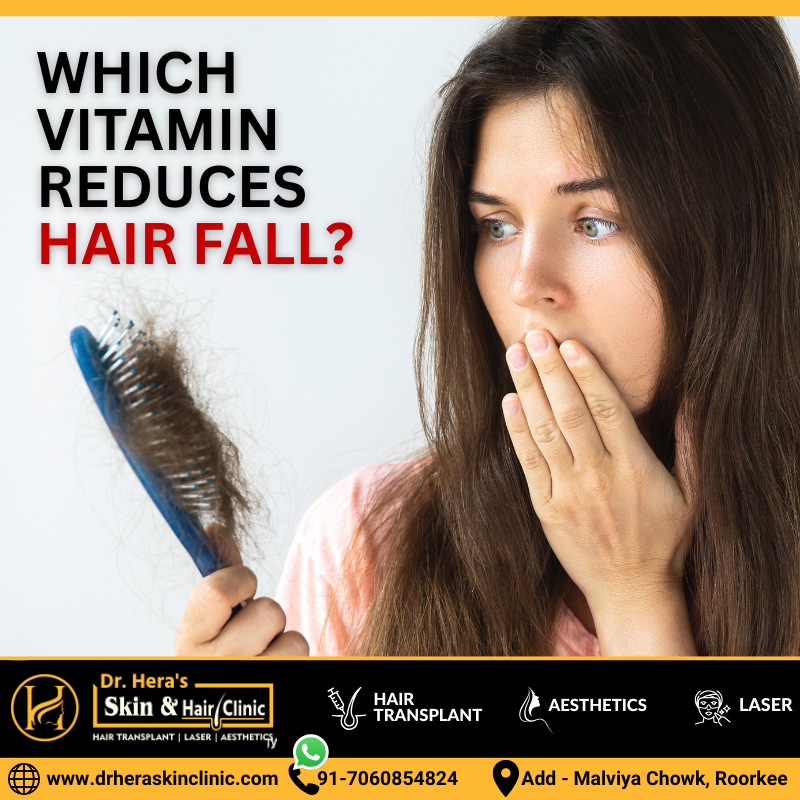One of the most overlooked causes of excessive hair shedding is vitamin deficiency. The health of your hair is closely tied to your internal nutrition, particularly certain key vitamins and minerals that play a critical role in follicle strength, scalp health, and hair growth cycles.
This article dives deep into the best vitamins that help reduce hair fall, how they work, and what you can do to restore your hair’s natural strength and volume.
Why Vitamins Matter for Hair Growth and Hair Fall Prevention
Hair follicles are some of the fastest-growing cells in your body. To maintain this rapid growth, they require a steady supply of nutrients.
When your body lacks essential vitamins, it often diverts nutrition from hair follicles to more vital organs—leading to hair loss.
Key roles vitamins play in hair health:
- Strengthening keratin structure (the building block of hair)
- Improving scalp circulation
- Reducing oxidative stress on follicles
- Supporting new follicle formation
Without the right nutrients, hair becomes weak, brittle, and more prone to falling out.
Top Vitamins That Reduce Hair Fall
Let’s explore the most effective vitamins known to support hair health and reduce hair fall.
Biotin (Vitamin B7)
Biotin is one of the most popular vitamins associated with hair growth. It aids in the production of keratin, the primary protein found in hair.
- Deficiency Signs: Brittle hair, hair thinning, and weak nails
- Food Sources: Eggs, almonds, sweet potatoes, spinach
- Why it helps: Biotin enhances hair strength and thickness and is often found in hair growth supplements.
Vitamin D
Vitamin D plays a vital role in stimulating new hair follicles. A deficiency can contribute to alopecia and overall hair thinning.
- Deficiency Signs: Fatigue, low mood, bone pain, hair thinning
- Food Sources: Sunlight, mushrooms, fortified milk, fatty fish
- Why it helps: It helps in the creation of new follicles and promotes healthy hair cycles.
Vitamin C
A powerful antioxidant, Vitamin C improves blood circulation to the scalp and enhances iron absorption—both essential for hair growth.
- Deficiency Signs: Dry, splitting hair, slow wound healing
- Food Sources: Oranges, berries, kiwi, bell peppers
- Why it helps: Protects hair follicles from oxidative damage and supports collagen production.
Vitamin E
Vitamin E is known for its ability to boost scalp health by improving blood flow and balancing oil production.
- Deficiency Signs: Dry scalp, hair breakage
- Food Sources: Sunflower seeds, almonds, spinach, avocados
- Why it helps: Reduces oxidative stress and promotes thicker hair growth.
Vitamin B12 & B Complex
The B vitamins—especially B12, B6, and folate—are essential for healthy red blood cell production, which delivers oxygen and nutrients to the scalp.
- Deficiency Signs: Hair thinning, fatigue, pale skin
- Food Sources: Eggs, dairy products, meat, fortified cereals
- Why it helps: Supports cellular growth and healthy follicle function.
Key Minerals That Also Support Hair Health
In addition to vitamins, certain minerals are equally crucial for reducing hair fall:
Iron
Essential for preventing anemia-related hair loss. Low iron levels can starve hair follicles of oxygen, leading to shedding.
Zinc
Regulates sebum production and helps repair hair tissue. Zinc also controls DHT, a hormone linked to hair loss.
Omega-3 Fatty Acids
Help in moisturizing the scalp and promoting strong, shiny hair.
Signs You May Have a Vitamin Deficiency Causing Hair Fall
If you’re experiencing the following symptoms, it’s time to assess your vitamin intake:
- Sudden increase in hair shedding
- Hair thinning along the part or crown
- Brittle, dry, or breaking hair
- Feeling tired or weak
- Slow hair regrowth
Best Foods to Add to Your Diet for Hair-Friendly Vitamins
| Vitamin | Benefits | Top Food Sources |
| Biotin (B7) | Strengthens keratin and promotes growth | Eggs, nuts, seeds |
| Vitamin D | Stimulates new follicles | Sunlight, fortified milk, fish |
| Vitamin C | Enhances scalp circulation | Citrus fruits, berries |
| Vitamin E | Reduces oxidative stress | Almonds, sunflower oil |
| Vitamin B12 | Supports oxygen delivery to follicles | Dairy, meat, cereals |
| Iron | Prevents anemia-related hair loss | Spinach, legumes, red meat |
| Zinc | Regulates DHT and oil production | Pumpkin seeds, lentils |
Should You Take Hair Supplements?
Hair supplements can be beneficial if you struggle to get enough vitamins through your diet—especially if you’re vegetarian, vegan, or have certain absorption disorders.
Important: Avoid self-prescribing supplements. Overconsumption, especially of fat-soluble vitamins like A, D, and E, can lead to toxicity.
Consult a certified expert for personalized advice. For instance, Dr. Hera Tabassum, a leading dermatologist in Roorkee, has successfully treated numerous patients with hair fall due to nutritional deficiencies by recommending targeted vitamin and lifestyle changes.
Frequently Asked Questions (FAQs)
Which vitamin deficiency causes hair fall most often?
Biotin and Vitamin D deficiencies are among the most commonly linked to hair loss.
Can taking biotin stop hair fall?
Biotin can improve hair strength and reduce breakage, especially if you are deficient in it. However, it won’t stop hair fall caused by other issues like hormonal imbalance or stress.
How long does it take for vitamins to reduce hair loss?
Visible improvement may take 8–12 weeks of consistent vitamin intake and proper diet.
Can too much vitamin intake cause hair loss?
Yes. Excess Vitamin A and certain supplements can actually lead to increased hair shedding. Always follow medical advice.
Final Thoughts: Nourish from Within for Stronger Hair
Vitamins play a powerful role in hair health—but they are only one part of the puzzle. A balanced diet, proper scalp care, and professional diagnosis are essential for sustainable results.
Hair fall can be reversed in many cases, especially when the root cause is nutritional. Start with small dietary changes, track your symptoms, and consult a skin specialist to determine the right approach.

